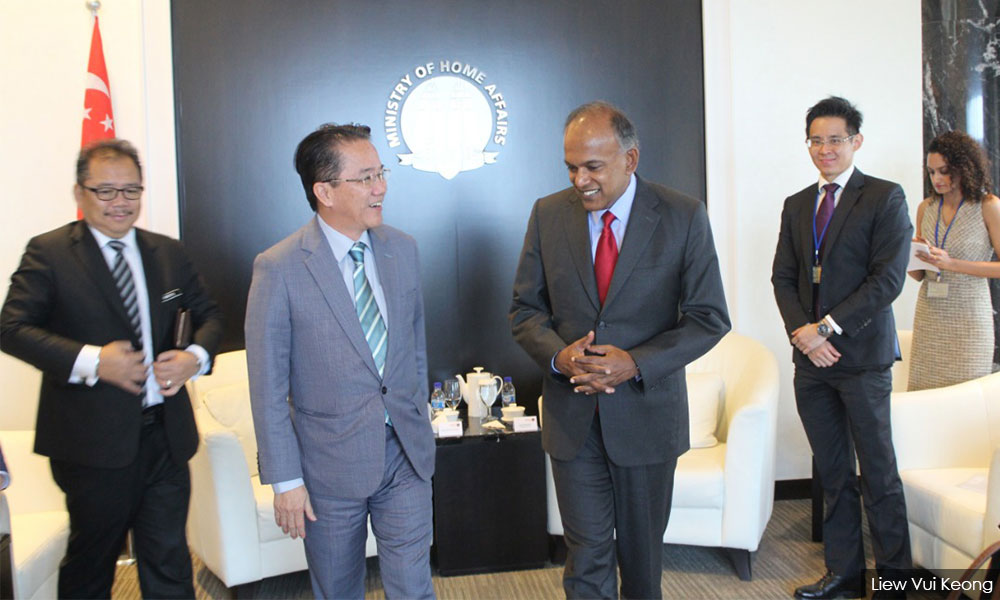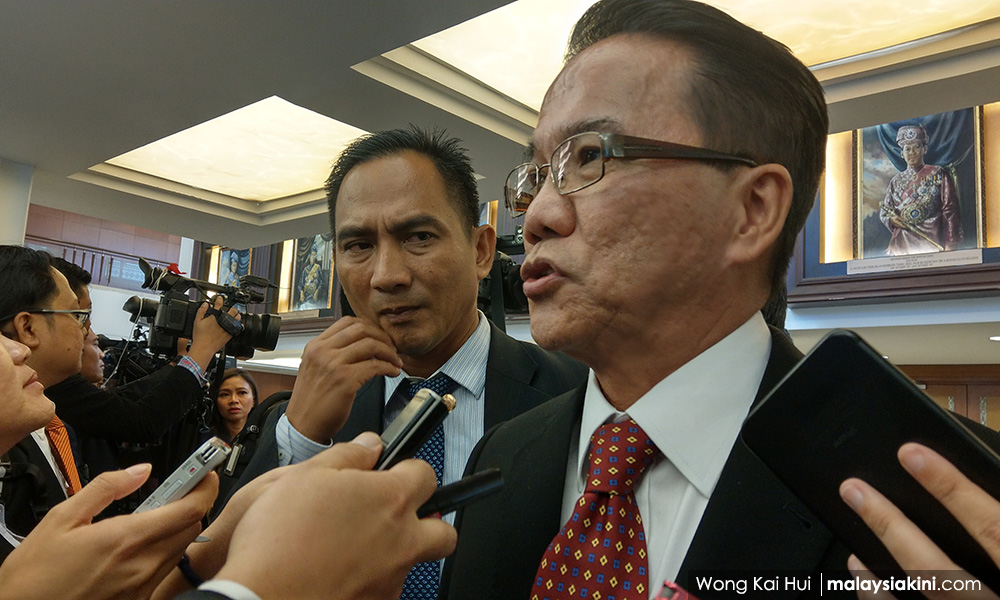
Batu Sapi MP Liew Vui Keong, who passed away yesterday, was a man with a mission who worked on multiple reforms simultaneously during his tenure as the de facto law minister for the Pakatan Harapan federal government.
From decriminalising suicide and drug addiction to police and human rights reforms, the 60-year-old Warisan permanent chairperson was doing it all.
However, many of his initiatives were cut short when the Harapan government collapsed after 22 months following the withdrawal of Bersatu from the ruling coalition and the defection of 10 PKR MPs led by Gombak MP Azmin Ali.
Here are some of the significant legislative initiatives and reforms that took place during Liew's 22-month tenure:
1. Lowering the voting age to 18 and automatic voter registration
Even though Liew was not solely responsible for lowering the voting age from 21 to 18, as the minister in charge of parliamentary affairs, he was instrumental in seeing through the legislative process in the Dewan Rakyat.
The Harapan cabinet had agreed to the constitutional amendment shortly after coming to power in May 2018. This was revealed by then youth and sports minister Syed Saddiq Syed Abdul Rahman.
The bill was finally tabled in July 2019 and passed the Dewan Rakyat in the same month with unanimous backing from both government and opposition MPs.
Automatic voter registration was also included in the legislative initiative.
The Election Commission is set to implement the changes by mid-2021 which will allow another 3.8 million voters to vote in 2023.
2. Sabah and Sarawak as equal partners
Liew oversaw the legislative process for a constitutional amendment to list Sabah and Sarawak as an equal territory to Peninsular Malaysia, reversing a 1976 amendment that relegated Sabah and Sarawak as mere states.

However, the amendment which required a two-thirds majority was defeated as it fell short by 10 votes.
The opposition at the time had abstained as they wanted more changes in the amendment. No MP voted against the bill.
3. Abolition of Anti-Fake News Act 2018
Then prime minister Najib Abdul Razak's BN government bulldozed the Anti-Fake News Act 2018 through Parliament just before the 2018 general election, at a time when his multi-billion ringgit 1MDB scandal had gained international attention.
There were fears that Najib would use the law to suppress allegations against him as "fake news" but he led BN to defeat in the 2018 general election.
Instead, Najib was charged for the multi-billion ringgit theft of 1MDB funds by the new Harapan government which also initiated the repeal of the Anti-Fake News Act 2018.
The repeal was approved by the Dewan Rakyat in August 2018 but rejected by the Dewan Negara a month later.
However, as per parliamentary procedure where the Dewan Negara can only delay a bill approved by the Dewan Rakyat and not outrightly bin it, it was re-tabled in October 2019 and passed both Houses.

4. Independent Police Complaints and Misconduct Commission (IPCMC)
Liew oversaw the tabling of the long-awaited IPCMC in the Dewan Rakyat on July 18, 2019.
It was a historic day as previous governments had resisted calls to set up the commission for the last 14 years due to concern that it will upset the police force, a critical voter base.
The bill did not immediately go for second reading as Liew continued consulting with stakeholders who gave further input after seeing the bill.
The bill was to be tabled during the first parliamentary sitting of 2020 but this did not materialise after the Harapan government collapsed in late February.
The new Perikatan Nasional (PN) government then re-tabled a heavily watered-down version of the IPCMC bill and plans to pass in at the next Parliament session in November.
5. Death penalty, decriminalising suicide, and more
Liew, a lawyer by training, was also working on getting various reform bills to the floor.
Among them was the abolition of the death penalty which would improve the country's standing internationally but was hugely unpopular domestically.

Despite the brickbats, Liew stood his ground. He related how a family member of his was also a murder victim but he was still convinced that the death penalty was not the way to go.
However, he didn't bulldoze the planned changes and instead engaged in lengthy consultation processes.
But the lengthy process also meant the changes did not see the light of day when the Harapan government collapsed.
Likewise, other legislative efforts that were already in the works such as the decriminalisation of suicide and drug addiction, freedom of information bill, and political financing bill could not be tabled in time.
He also ensured that the National Human Rights Commission's (Suhakam) report was debated in the Dewan Rakyat in 2019, which was the first time in 20 years.
Suhakam described Liew's passing as losing one of its strongest human rights allies.
Liew passed away yesterday at a hospital in Kota Kinabalu. He had succumbed to a lung infection.
He left behind widow Lindai Lee and four children.
Liew was warded for a suspected slip disc in mid-September and reportedly slipped into a coma after contracting a lung infection. - Mkini


No comments:
Post a Comment
Note: Only a member of this blog may post a comment.